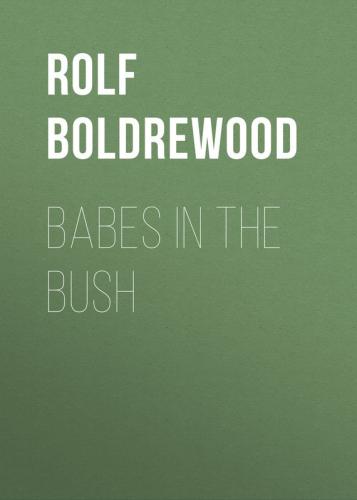‘The first lot, ladies and gentlemen, is No. 1. Generally so, isn’t it? Ha! ha! One hundred and fifty-four cows and heifers, all broken to bail; most of them with calves at foot, or about to – to – become mothers.’
Mr. Crackemup was a man of delicate ideas, so he euphemised the maternal probabilities.
‘Any one buying this choice lot, with butter at a shilling, and cheese not to be bought, buys a fortune. I will sell a “run out” of twenty head, with the option of taking the lot. “Fifteen shillings a head” – nonsense; one pound, twenty-two and six, twenty-five-thank you, miss; thirty shillings, thirty-five, thirty-seven and six-thank you, sir. One pound seventeen and sixpence, once; one pound seventeen and sixpence, twice; for the third and last time, one pound seventeen shillings and sixpence. Gone! What name shall I say, sir? “Howard Effingham, Warbrok Chase.” Twenty head. Thank you, sir.’
At this critical moment the voice of Dick Evans was heard by Wilfred, in close proximity to his ear: ‘Collar the lot, sir; they’re dirt cheap; soon be in full milk. Don’t let ’em go.’
‘I believe,’ said Wilfred, raising his voice, ‘that I have the option of taking the whole.’
‘Quite correct, sir; but if I might advise – ’
‘I take the lot,’ said Wilfred decisively.
And though there was a murmur from the crowd, and one stalwart dame said, ‘That’s not fair, thin; I med sure I’d get a pen of springers myself,’ the auctioneer confirmed his right, and the dairy lot became his property.
It turned out, as is often the case, that the first offered stock were the most moderate in price. Many of the buyers had been holding back, thinking they would go in lots of twenty, and that better bargains might be obtained. When they found that the stranger had carried off all the best dairy cows, their disappointment was great.
‘Serves you right, boys,’ was heard in the big voice of the proprietor; ‘if you had bid up like men, instead of keeping dark, you’d have choked the cove off taking the lot. Serves you all dashed well right.’
The remaining lots of cattle consisted of weaners, two and three-year-old steers and heifers. Of fat cattle the herd had been pretty well ‘scraped,’ as Donnelly called it, before the sale. For most of these the bidding was so brisk and spirited that Wilfred thought himself lucky in securing forty steers at twenty-five shillings, which completed his drove, and were placed in the yard with the cows.
Then came the horses; nearly a hundred all told – mares, colts, fillies, yearlings, with aged or other riding-horses. These last Donnelly excused himself for selling by the statement that if he took them to Monaro half of them would be lost trying to get back to where they had been bred, and that between stock-riders and cattle-stealers his chance of regaining them would be small.
Конец ознакомительного фрагмента.
Текст предоставлен ООО «ЛитРес».
Прочитайте эту книгу целиком, купив полную легальную версию на ЛитРес.
Безопасно оплатить книгу можно банковской картой Visa, MasterCard, Maestro, со счета мобильного телефона, с платежного терминала, в салоне МТС или Связной, через PayPal, WebMoney, Яндекс.Деньги, QIWI Кошелек, бонусными картами или другим удобным Вам способом.
